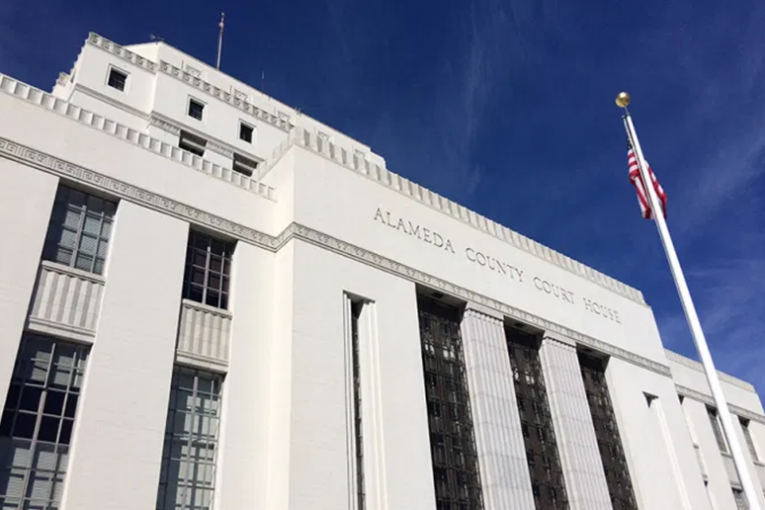

By Jake Romero
DUBLIN, CA — Witness testimony continued Friday in the homicide DUI trial of Tyler Underwood at the East County Hall of Justice / Alameda County Superior Court where multiple concerns were raised, including a penal code violation and undue consumption of time.
Janine Arvizu, a laboratory quality auditor with over 20 years of experience, continued her testimony from Wednesday as an expert witness.
The defense hired Arvizu to evaluate lab data from Santa Clara Valley Medical Center and Central Valley Toxicology, and according to her testimony, blood tests conducted at these labs determined Underwood was heavily intoxicated when he allegedly crashed his car and killed a man in 2018.
Arvizu told Deputy District Attorney Abigail Mulvihill that she was not asked to perform an on-site system audit of the labs. DDA Mulvihill then asked Arvizu what her on-site audits typically find regarding quality control problems.
“I’ve never found a laboratory that did everything absolutely perfectly,” Arvizu said.
Arvizu testified that she was unable to provide an opinion in her report about whether Underwood was intoxicated on the night of the incident and she did not personally test any blood related to the case.
During the morning break, Judge David Pereda addressed a claim DDA Mulvihill had made—that the defense violated the penal code by not submitting Arvizu’s report into discovery until Oct. 26, after the jury trial had started.
“This is a lack of candor to the court, it’s a lack of candor to the People, and it’s a violation of 1054,” said DDA Mulvihill. California Penal Code § 1054 requires both the defense and prosecution to submit any intended witness’ export reports into discovery prior to the trial.
Deputy Public Defender Michael Wu said he did not fully intend to call Arvizu as a witness until he received the final report on Oct. 26. Prior to then, she was on the potential witness list and he had only received an initial draft on Sept. 19.
“I think it’s very reasonable to expect that there are sometimes drafts,” PD Wu said. “I wouldn’t want every single draft of every statement—I want the statement that’s complete and accurate, so that is what I did in this case.”
Judge Pereda then addressed concerns about evidence related to Underwood’s prior convictions of driving recklessly and intoxicated. He declared that two instances are inadmissible, and the admission of any BAC results from other cases needs to be discussed later, citing concerns of jury confusion and undue consumption of time.
After the break, PD Wu continued with redirect and asked Arvizu about Title 17, California’s regulation code for the storing and handling of DUI blood samples.
Arvizu said that compliance with Title 17 does not guarantee reliable test results because it is possible for them to be “demonstrably wrong,” noting that there have been instances where results “are incorrect and still comply with each of [Title 17’s] requirements.”
Arvizu also testified that California does not require accreditation from its forensic labs, and this concerns her because “accreditation has essentially become a de facto requirement for labs to prove they’re competent in a particular area of testing.”
The defense then called Underwood to the stand and mainly asked about his childhood. After less than five minutes, Judge Pereda paused the questioning and asked the lawyers to meet with him privately.
During the testimony, Judge Pereda had sustained several of the prosecution’s objections regarding lack of foundation and relevance.
Underwood’s testimony did not resume later in the afternoon due to delays, according to Judge Pereda. The trial is set to reconvene Monday morning.

